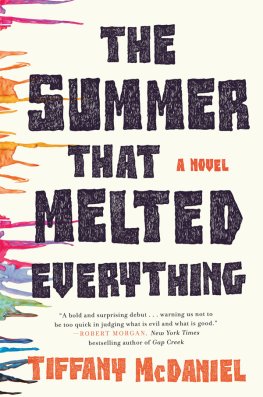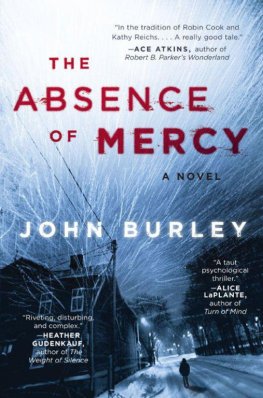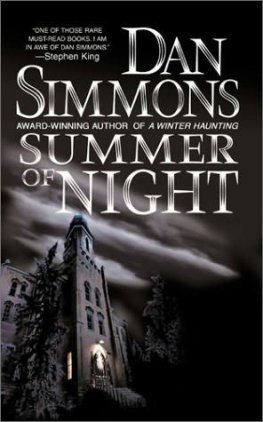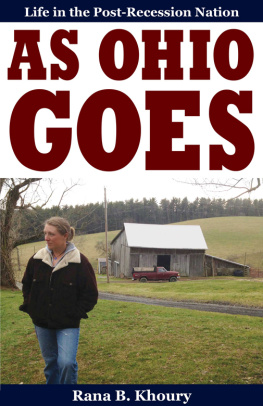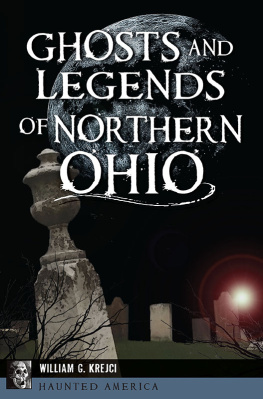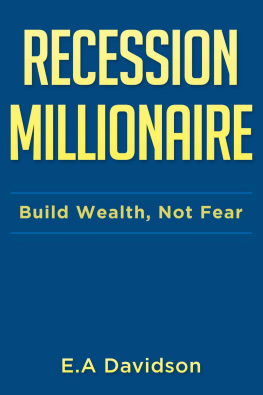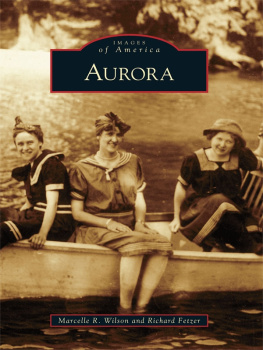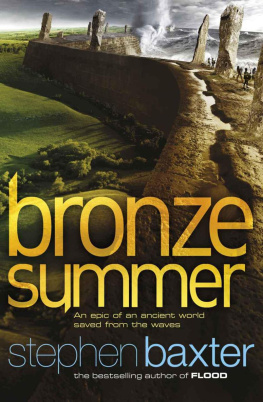Thank you for downloading this Simon & Schuster ebook.
Get a FREE ebook when you join our mailing list. Plus, get updates on new releases, deals, recommended reads, and more from Simon & Schuster. Click below to sign up and see terms and conditions.
CLICK HERE TO SIGN UP
Already a subscriber? Provide your email again so we can register this ebook and send you more of what you like to read. You will continue to receive exclusive offers in your inbox.
We hope you enjoyed reading this Simon & Schuster ebook.
Get a FREE ebook when you join our mailing list. Plus, get updates on new releases, deals, recommended reads, and more from Simon & Schuster. Click below to sign up and see terms and conditions.
CLICK HERE TO SIGN UP
Already a subscriber? Provide your email again so we can register this ebook and send you more of what you like to read. You will continue to receive exclusive offers in your inbox.
For Andy Finke.
Because I still owe you for that old mattress and the time you picked me up at the bus stop in Cincinnati.
We all miss you, man.
P RELUDE
R ICK B RINKLAN AND THE L AST L ONESOME N IGHT
T HE COFFIN HAD NO BODY in it. Instead, the Star Legacy 18-Gauge Platinum Rose casket, on loan from the local Walmart, had only a large American flag draped across its length. It rode down High Street on a flatbed trailer, tugged along by a Dodge RAM 2500 the color of an overripe cherry. A blast of early winter cold had invaded October, and a hard, erratic current of air tore across New Canaan with the unpredictability of a childs tantrum. One second the breeze was calm, tolerable, and the next a frigid banshee shriek would rip across High Street, chilling the assembled, scattering leaves and loose litter, drowning out petty chatter, and carrying voices off to the sky. Before the truck and its cargo left the fire station, the staging ground for all of New Canaans parades from Thanksgiving to the Fourth of July, no one had bothered to secure the flag, and as the show casket reached downtown, a gust of wind finally took it. The Stars and Stripes flapped, undulated, parachuted through this mad breeze, as several sorrowful gasps issued from the crowd. Nothing could be done. Each time it began to drift back to earth, another gust would catch it, toss it, bear it aloft. The flag made its way to the square, where it finally snagged on the gnarled branches of an oak tree and shuddered there.
The procession for Corporal Richard Jared Brinklan had originally been scheduled for Memorial Day. KIA in Iraq in the final days of April, the timing made sense, but then an investigation into the circumstances surrounding his death delayed the bodys return. Once that wrapped up, the display of hometown pride was planned for the same July day as the funeral. Unfortunately, a monstrous summer thunderstorm overran that afternoon. A flash flood of the Cattawa River and a tornado warning kept all of New Canaan indoors. At that point Ricks family did not much care whether there was a parade or not, but the mayor, sensing the electoral hazard of failing to honor the third son New Canaan had lost to the current conflicts, insisted on scheduling a parade for October. People tended to roll their eyes at this small-town politicking and then go out and vote based on it anyway.
The town was sleeved in red, white, and blue. Small flags spaced every fifteen feet in the grass-lined High Street for over a mile leading to the square. Flags in windows, as car decals, clutched in childrens pink hands and adults scummy gloved ones, even drawn with red, white, and blue frosting onto an enormous sheet cake being sold by the slice outside Vickys All-Night Diner. The roads trees, rich with autumn reds and yellows, clashed brilliantly against the gunmetal sky. Meanwhile, the wind tried its goddamnedest to emancipate the leaves of these quaint elms, alders, and oaks. Two New Canaan Police Department cruisers led the way, lights silently flickering, an errant woot from the sirens every few hundred yards, followed by the sheriffs cars, the SUVs, and every other vehicle the police department could spare for the son of one of its own: Chief Investigator Marty Brinklans youngest boy. Volunteers on motorcycles followed, some driven by vets, but really anyone in town who owned wheels was there. American flags and POW-MIA banners flapped from the backs of the bikes. Following this long hodgepodge of vehicles crawling slowly down the citys main thoroughfare came the flatbed with its flagless coffin. Some stepped out of their homes that bordered the east side of town only to scramble inside after the casket passed. Some huddled in Ohio State jackets and New Canaan Jaguar sweatshirts. Some pulled bright blue GORE-TEX hoods around their heads, tugged toboggan caps low, and many, misjudging the weather, let their ears turn bright red and painful to the touch. One questionable soul wore nothing but disintegrating jeans and a No Fear shirt with the sleeves cut off, exposing arms inked solid with tattoos. Some held toddlers or gently rocked bundled babies in strollers. Older children stood with their parents, twiddly and bored, shifting weight anxiously from one leg to the other. Unsupervised kids chased each other through the legs of the adults, oblivious to the sorrow around them. The teenagers, of course, treated the whole affair like a social function (as Rick himself might have once). The girls flirted with the boys, while those boys waited to be chosen. They talked too rapidly, they laughed too loudly, they carved their initials into trees with pocketknives. There was a man wearing a Desert Storm Veteran ball cap talking to the lone TV reporter whod made the long trip from Columbus. There was a girl holding a piece of cardboard that said simply #25 . Another held a poster board that read: We LOVE U Rick!!!
They worked at Owens Corning as engineers and data specialists, at the Jeld-Wen plant as general labor manufacturing doors and windows, in the antique and clothing shop on the square, using a doming block and hammer to mold Buffalo nickels into ornamental buttons for purses and shirts. They worked at Krogers and on road crews and at First-Knox National Bank and the local DMV, which ran with such brisk efficiency that wait times rarely exceeded five minutes. They worked at the county hospital, the towns largest employer, as nurse practitioners, doctors, janitors, technicians, physical therapists, and physicians assistantsas private practices found it harder to get by, the hospital bought them up until the entire county relied on this single entity for its medical care. Many worked in the vast network of old age homes, retirement communities, hospices, and of course a few worked in mortuary services and were not thrilled by Walmarts intrusion into the casket business. The residents of New Canaan owned the countys lone liquor store, veterinary practices, a sporting goods store that made seventy percent of its sales on guns and ammunition. They were psychologists and podiatrists. They drove trucks for potato chip suppliers. They worked as health inspectors. They built porches, installed hot tubs, fixed sewer systems, and landscaped. Some had tried to flip houses. One of them, age twenty-three, had taken a loan from a bank, then another from his father, and was now looking up bankruptcy law online. Some worked for New Canaans only newspaper, hands going carpal tunnel today trying to collect quotes about Rick. One of them coached the high school football team and his praise for Rick was an indomitable waterfall ( One of the finest young men Ive ever coached selfless dedicated best teammate Ive ever seen cared about every guy from the quarterback to the last guy off the bench ), an Appalachian-accented wind. Those whod lost children thought of the ways theyd been taken: leukemia and hunting accidents, suicides and car wrecks, liver tumors and drowning, cars that overheated in the summer sun with rescue just a few feet away, standing in line at the dry cleaners. Some had terrible dreams and woke frequently to sweat and confusion. Others shot up, showered, and went to work.
Next page

